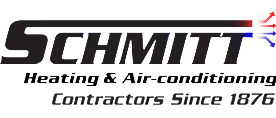Efficiency Standards For HVAC Equipment: Are They Going Up Soon?
Recently, the federal HVAC efficiency standards, particularly when applied to propane and natural gas furnaces, have gone from static to unresolved. Propane and natural gas furnaces account for more than 40% of average residential energy consumption; consequently, a modest rise in efficiency requirements can have a big impact on the total national energy consumption. On the other hand, even with the minimum AFUE rating stuck at 78 for more than two decades, raising the HVAC efficiency standards has proven difficult to enact.
The Annual Fuel Utilization Efficiency, AFUE, shows the percentage of energy that contributes to heating versus the amount wasted. For example, for a furnace with AFUE rating of 78, 78% of the energy generated from natural gas contributes to heating while 22% is lost. The Department of Energy proposed raising the rating to 90% by 2013; however, a court order delayed the implementation of the new efficiency standards for boilers and furnaces.
Modern condensing furnaces recover a large amount of that lost energy, thereby improving AFUE ratings and reducing the annual utility costs, particularly in the northern states with longer heating seasons. Whereas standard furnaces have a single heat exchanger, condensing furnaces have two. The second one extracts heat from hot water vapor and uses it to heat the home, instead of sending it up the chimney. As the hot vapor condenses, it drains into the home’s plumbing system.
Even as would-be furnace buyers got familiar with the new condensing furnace technology, enactment of the new standards hit a snag. Opponents argued that the extra expenses forced on homeowners by the directive to upgrade were too much. These expenses include retrofitting and installing new venting, and in some cases, modernizing to a new water heater that is compatible with the new venting.
Until a federal court makes a verdict on the matter, the postponement of enactment will continue, and the HVAC efficiency standards will remain at the 1990s levels. However, homeowners who need to upgrade their heating and cooling systems to lower their fuel consumption can buy high–efficiency HVAC equipment, including higher AFUE furnaces.
Homeowners with questions about HVAC efficiency or any other heating and cooling service should contact their local HVAC contractors.



